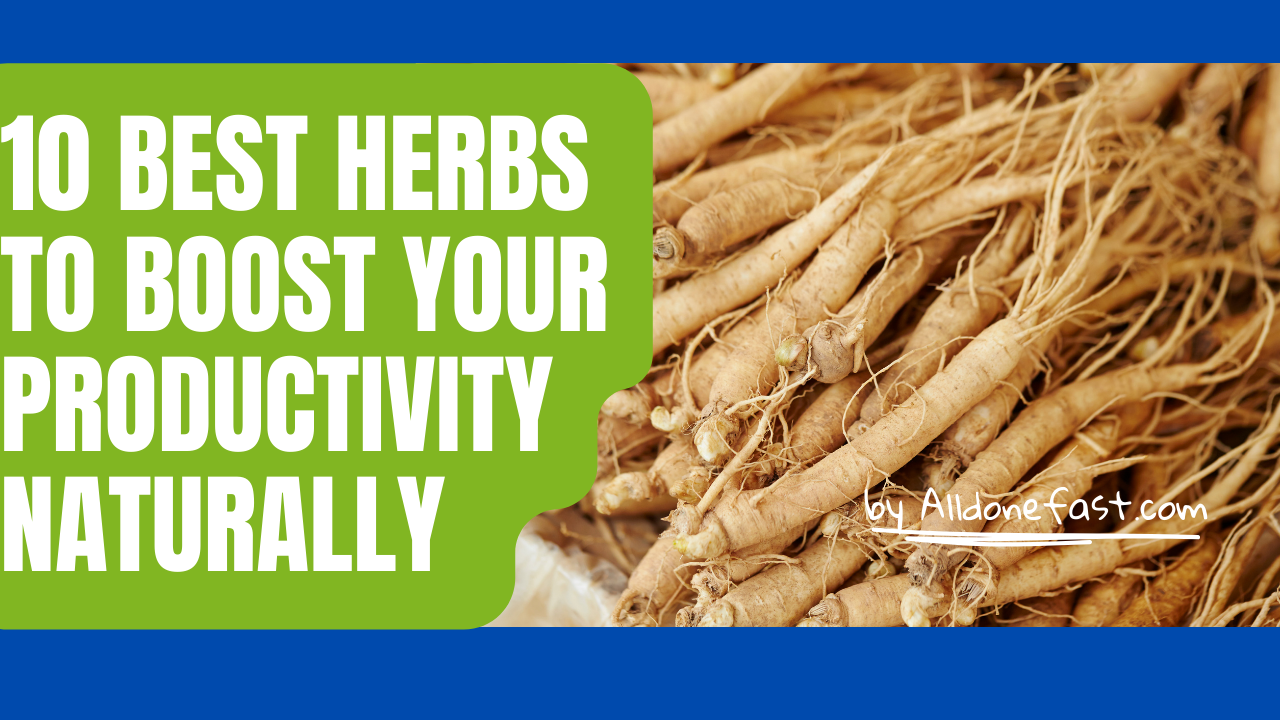10 Best Herbs To Boost Your Productivity Naturally
In a world filled with hectic schedules and overwhelming stressors, it’s no wonder that so many of us feel drained, constantly seeking ways to reclaim our energy and alertness.
The demands of modern life can take a toll on our physical and mental well-being, leaving us trapped in a perpetual state of exhaustion.
Moreover, certain herbal supplements, including those mentioned above, hold promise for elevating your energy levels, sharpening your focus, reducing stress, boosting your memory, enhancing your brain function.

Amidst the countless quick-fix solutions promising instant energy boosts, we often find ourselves disappointed with undesirable side effects and fleeting results. But fear not, for there is a natural alternative that has withstood the test of time – herbs.
These powerful botanicals offer a comprehensive approach to increasing energy and promoting mental clarity, without the crashes and jitters associated with artificial stimulants.
In this captivating journey, we will explore the finest herbs known to humanity. These remarkable plants have been used for centuries to combat fatigue, restore vitality, and ignite our inner spark.
By incorporating these herbs into your daily routine, you can tap into their inherent properties to revitalize your body, sharpen your mind, support cognitive function, reduce stress, improve memory, elevate mood, and even boost creativity.
Imagine a life where you effortlessly harness your productivity and unlock your full potential.
Whether you’re a student striving for academic excellence, an entrepreneur seeking peak performance, or simply an individual eager to make the most of your precious time, this article is your guide.
Unleash your true productivity prowess and embrace a life where your energy reserves know no bounds.
Here are the 10 best herbs to boost your productivity, according to scientific research. (1)
Herbs for Energy and Focus
Rhodiola Rosea
Having enough energy and steady attention are essential in the pursuit of increased productivity. Rhodiola Rosea is a standout herb in this category.
Rhodiola Rosea has been used for centuries to battle weariness, increase energy levels, and enhance mental clarity due to its extraordinary adaptogenic characteristics.
Rhodiola Rosea works by increasing the body’s resistance to stress and promoting balanced cortisol levels.
This herb stimulates the production of neurotransmitters like dopamine and serotonin, which play vital roles in regulating mood and focus.
This powerful herb has the potential to unleash a surge of invigorating energy, elevate your cognitive function to new heights, and help you achieve laser-like concentration.
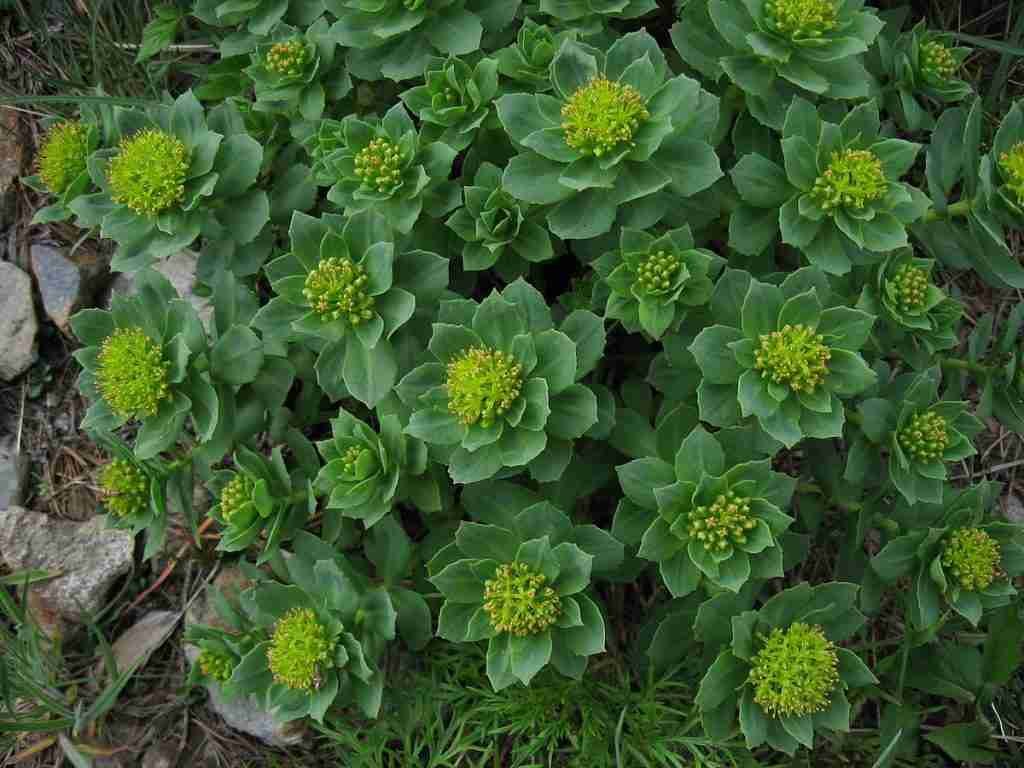
To experience the advantages of Rhodiola Rosea, you may want to try herbal supplements made from this powerful herb. They can provide you with a boost in energy, leading to a revitalized sense of vigor and improved efficiency.
It’s advisable to adhere to the recommended dosage instructions and seek advice from a healthcare professional if needed
Ginseng
Ginseng is a powerful antioxidant-rich plant. According to research, it may be beneficial to brain health, immunological function, blood sugar regulation, and other areas.
When it comes to herbal supplements for productivity, Ginseng is a true powerhouse.
It has been used for centuries for its ability to combat physical and mental exhaustion while enhancing cognitive function.
Ginseng works by stimulating the central nervous system, resulting in increased energy levels and mental alertness.
This herb not only enhances energy levels but also supports the body’s natural ability to adapt to stress, promoting a sense of balance and resilience.

It may be eaten raw or mildly steamed to soften. Tea may be made by stewing it in water. Simply add boiling water to freshly sliced ginseng and soak for several minutes.
Ginseng may be used in a variety of cuisines, including soups and stir-fried foods.
Remember, productivity begins with having the energy and focus to tackle your tasks effectively. Unlock your full potential and seize each day by harnessing the power of Rhodiola Rosea and Ginseng.
These remarkable herbs can significantly enhance your productivity, helping you achieve more and reach new heights of success.
Herbs for Stress Reduction
Holy Basil (Tulsi)
In the fast-paced world, we live in, stress can often hinder productivity and overall well-being. Fortunately, there are natural remedies available to help combat the negative effects of stress, and one such herb is Holy Basil, also known as Tulsi.
The herb Ocimum sanctum is known as holy basil in English. This is not to be confused with the culinary version of basil, which originates from the plant Ocimum basilicum.
Holy Basil has been valued in Ayurvedic medicine for its calming properties and its ability to promote balance in the body and mind.
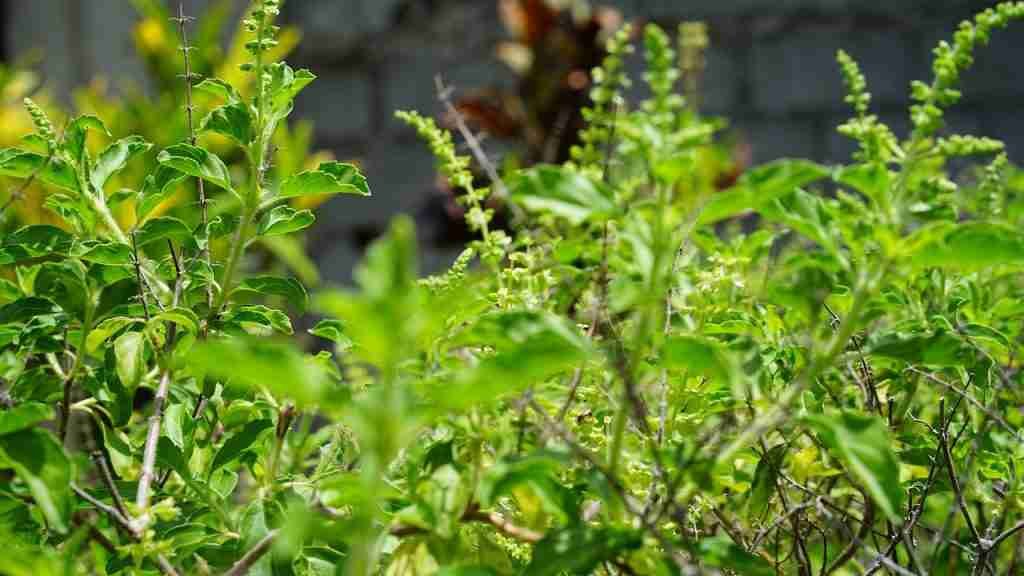
Holy Basil contains compounds that act as adaptogens, helping the body adapt to stress and maintain equilibrium.
This herb also possesses antioxidant properties, which can support overall health and resilience.
Depending on the reason for utilizing holy basil, there are several methods to use it.
You can try brewing a warm cup of Tulsi tea or incorporating Tulsi supplements into your daily regimen.
The seeds or leaves can also be consumed, and the oil from the seeds.
Taking supplements in the form of capsules or pills is also very popular.
Boost your productivity, alleviate stress, enhance well-being, and unlock your full potential with Holy Basil!
Ashwagandha
When stress becomes overwhelming, it can hinder productivity and affect various aspects of life.
Ashwagandha is an herb known for its stress-reducing properties and its ability to promote a sense of calm and relaxation.
Ashwagandha is a member of the pepper family and has been used in traditional medicine, or Ayurveda, in India for thousands of years.
Ashwagandha works by modulating the body’s stress response system, helping to regulate cortisol levels and combat the effects of chronic stress.
This herb also supports overall well-being, promoting a healthy immune system and balanced energy levels.
Ashwagandha root extract is available in capsules and tinctures, but its most popular form is powder.
Powdered ashwagandha root is typically blended with ghee, honey, or water and consumed or administered topically to swollen joints or as part of an Ayurvedic beauty routine.
To counteract the earthy, bitter flavor of ashwagandha powder, add it to sweet pastries, hot drinks, and smoothies.
Ashwagandha can help you feel less stressed, more focused, and more productive.
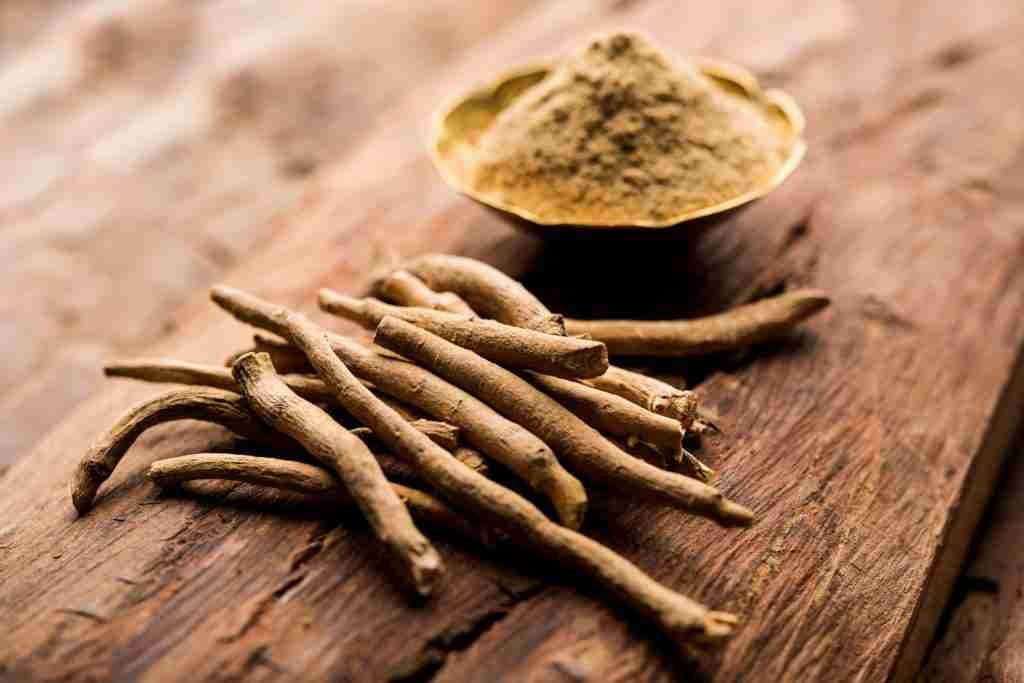
Harness the combined benefits of Holy Basil and Ashwagandha to navigate challenges with serenity and focus, reducing stress, boosting productivity, and embracing a greater sense of well-being.
Herbs for Memory Enhancement
Rosemary
Rosemary is a fragrant herb that is used to flavor a number of meals, including soups, casseroles, salads, and stews.
Rosemary pairs well with chicken and other fowl, lamb, goat, and fish, particularly oily fish. It complements grains, mushrooms, onions, peas, potatoes, and spinach.
In the pursuit of productivity, having a sharp memory and heightened mental alertness can make all the difference.
Rosemary has long been associated with memory enhancement and cognitive function.
It’s distinct aroma and potent properties have made it a favorite among herbalists and scholars alike.
Rosemary contains compounds that stimulate the brain and improve memory retention. It has been found to enhance cognitive performance and boost overall mental clarity.
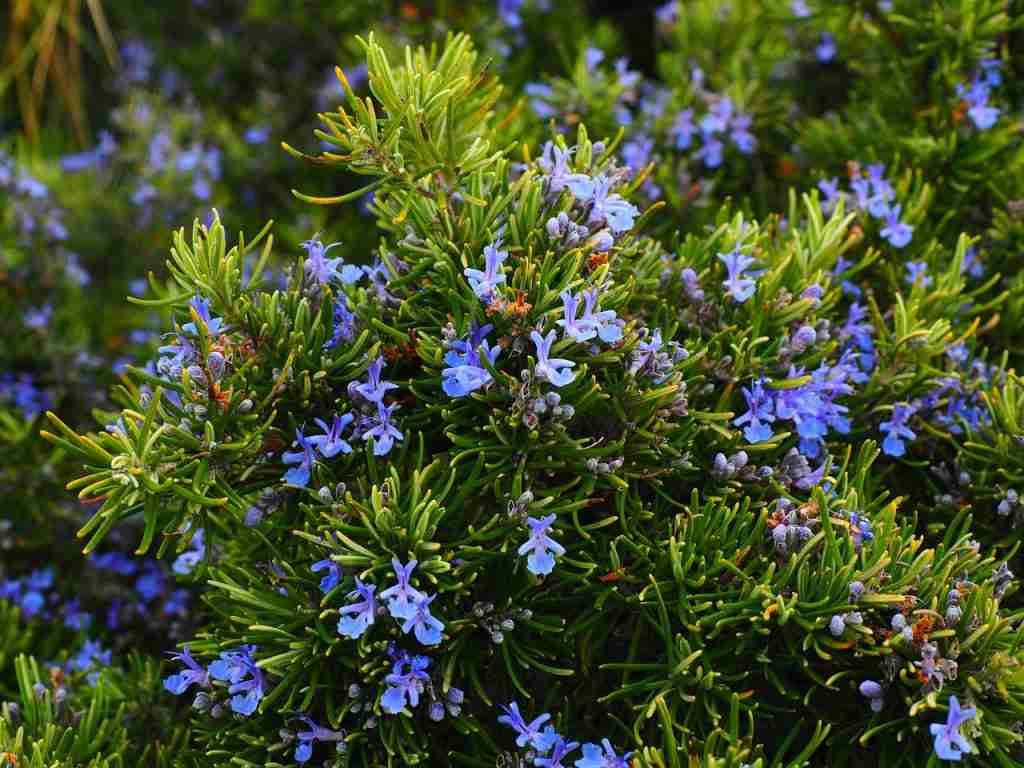
Rosemary can be consumed as a dry herb tea, tincture, fluid extract, bath decoction, or essential oil combined with other oils for topical treatment.
Consult your doctor to determine the appropriate dose for your situation. The total daily consumption of the dry herb should not exceed 4 to 6 grams. DO NOT INGEST ROSEMARY OIL.
Gotu Kola
Centella asiatica (Gotu Kola) is a parsley-like plant. It has been used for centuries in traditional Chinese and Ayurvedic health systems.
It has the ability to enhance memory and promote overall brain health.
Gotu Kola contains compounds that support the production of collagen, a vital protein that maintains the health of brain cells and improves cognitive function.
Gotu kola is also used to treat burns and impaired circulation, which can contribute to varicose veins. It is also claimed to treat scars, stretch marks, and a variety of other diseases, although there is no scientific evidence to back up most of these claims.
When it comes to herbs that support memory and brain health, Gotu Kola stands out as a true gem.
Most plants contain antioxidants, however gotu kola stands out as a neuroprotective antioxidant, helping to defend against oxidative stress and age-related cognitive decline.
It has been used to treat brain-related disorders including mental fatigue, anxiety, depression, memory loss, and insomnia.
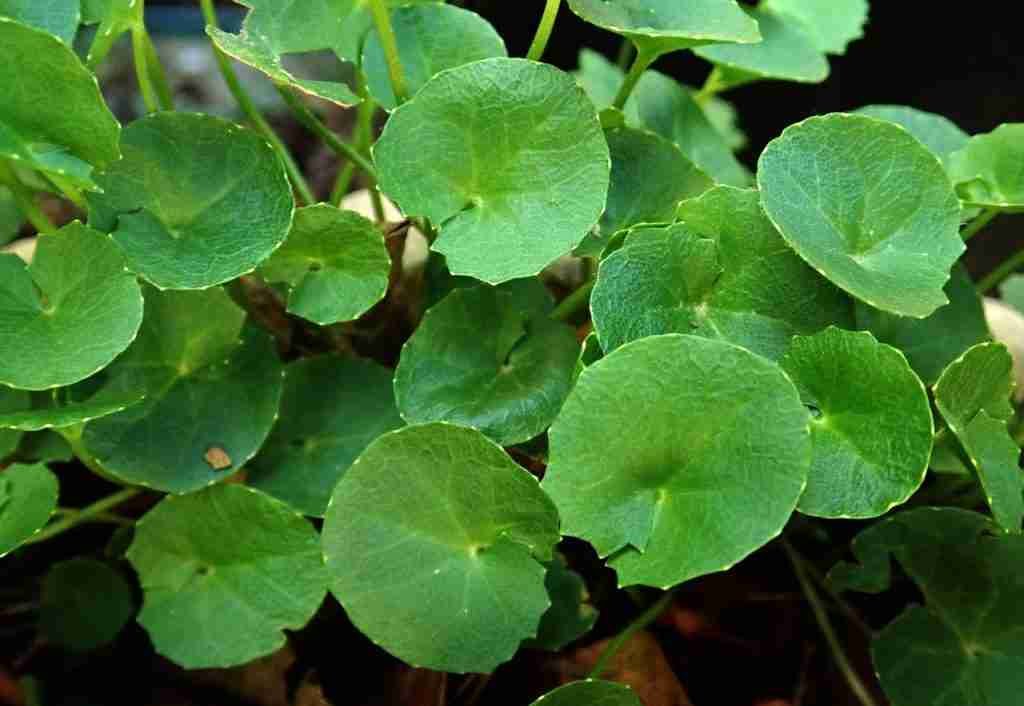
Gotu kola protects the brain from the effects of ordinary life’s attacks. Few herbal treatments are used as food since to be honest, they don’t taste particularly delicious!
This mild-flavored plant has the texture and look of watercress and a parsley-like flavor.
It’s a frequent element in many Asian recipes, including salads, rice, and curries.
You’re unlikely to find gotu kola in your local grocery shop in the United States, but you may buy seeds or plants and grow your own.
If you are looking for ways to improve your memory, cognitive function, and mental alertness, then Rosemary and Gotu Kola are great herbs to try!
You can take these herbs as supplements, or you can add them to your diet in the form of teas, tinctures, or essential oils.
No matter how you choose to take them, Rosemary and Gotu Kola can help you to unlock your full potential and live a sharper, more fulfilling life.
Herbs for Mood Elevation
St. John’s Wort(Goat Weed)
St. John’s Wort, a well-known plant in the domain of natural mood improvement, has been used for centuries to ease mild to severe depression and promote emotional equilibrium.
St. John’s wort is currently being pushed as a treatment for depression, menopausal symptoms, attention deficit hyperactivity disorder (ADHD), somatic symptom disorder (a disease in which a person has severe, exaggerated concern over physical symptoms), obsessive-compulsive disorder, and other disorders.
St. John’s Wort contains compounds that help regulate neurotransmitters such as serotonin, dopamine, and norepinephrine, which play vital roles in mood regulation.
In the United States, St. John’s wort is accessible as a nutritional supplement. However, due to medication interaction concerns, France has restricted its usage. So, it is important to consult with a healthcare professional before using.
St. John’s wort is only accessible with a prescription in other countries.

If you are looking for a natural way to improve your mood and boost your productivity, St. John’s Wort may be a good option for you
Saffron: Nourish Your Mood and Reduce Anxiety
Saffron (Crocus sativus) is a plant.
Saffron includes compounds that may affect mood, destroy cancer cells, reduce edema, and function as antioxidants.
A single pound of saffron spice may be made from 75,000 saffron blooms. Saffron is mostly grown in Iran and collected by hand. It’s one of the most costly spices in the world.
In the realm of herbal supplements for mood elevation, Saffron stands out as a valuable ally.
Also known as the “sunshine spice,” Saffron has been treasured for centuries for its ability to improve mood, reduce anxiety, and promote a sense of inner calm.
Saffron contains compounds that boost the production of serotonin, a neurotransmitter responsible for promoting feelings of happiness and well-being.
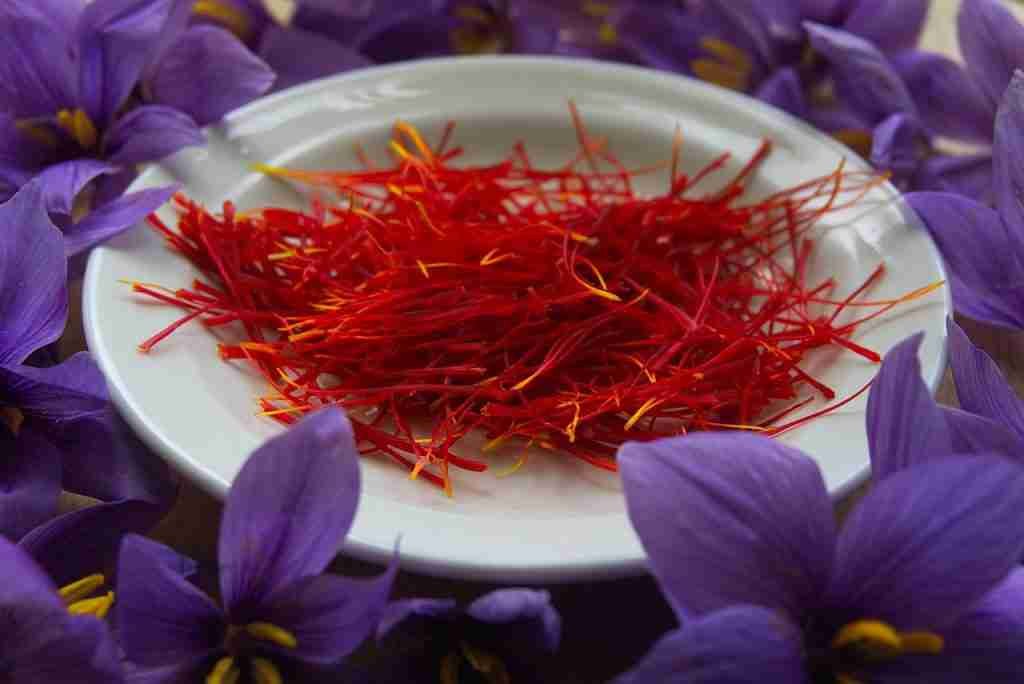
Saffron is typically safe at regular dosages, with few to no adverse effects. To prevent getting a contaminated product, buy saffron from a respected brand or retailer.
With St. John’s Wort and Saffron as your companions, you can nurture a positive mindset, alleviate mood imbalances, and foster a harmonious inner state.
Embrace these herbs and discover the path to elevated mood, increased productivity, and a more fulfilling life.
Herbs for Relaxation
Chamomile
Chamomile is one of the oldest therapeutic plants known to man.
Chamomile, a gentle herb renowned for its calming properties, has been used for centuries to promote relaxation and soothe the mind.
Chamomile contains compounds that interact with receptors in the brain, helping to reduce anxiety, promote sleep, and induce a state of relaxation.
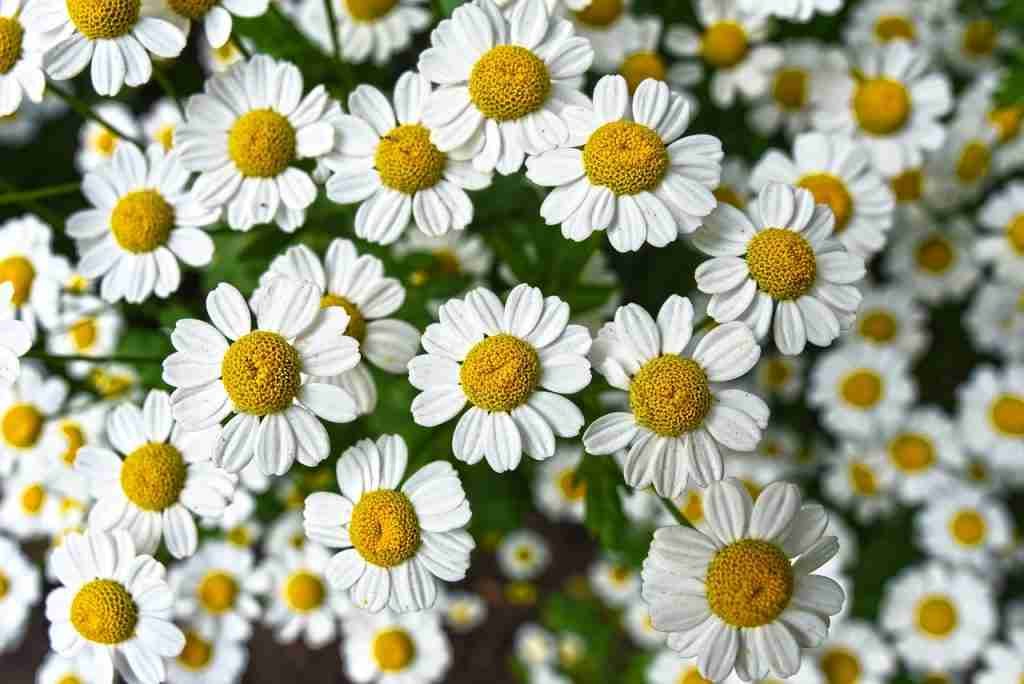
Chamomile has been used as a traditional medicine to treat gastrointestinal disorders such as flatulence, indigestion, diarrhea, anorexia, motion sickness, nausea, and vomiting.
To enjoy the benefits of Chamomile, consider sipping on a warm cup of Chamomile tea before bedtime or incorporating Chamomile supplements into your routine.
Chamomile tea is a natural cure for a variety of health problems. Its nutrients may aid with diabetes, menstrual discomfort, and sleep issues, among other things.
Lavender
When you hear the term “lavender,” you may envision a lighter hue of purple. But this plant is more than just its color.
Lavender is a blooming plant in the mint family known for its pleasant flowery aroma. It is said to be native to the Mediterranean, the Middle East, and India, having a 2,500-year history.
Lavender is becoming more than simply a fragrant herb. This plant, it turns out, is also widely utilized for medical and therapeutic purposes.
So, if you have a few medical difficulties and don’t want to risk the nasty side effects of numerous over-the-counter and prescription medications, here’s a look at the possible health benefits of cannabis.
When it comes to herbs that evoke a sense of serenity and relaxation, Lavender is a true champion.
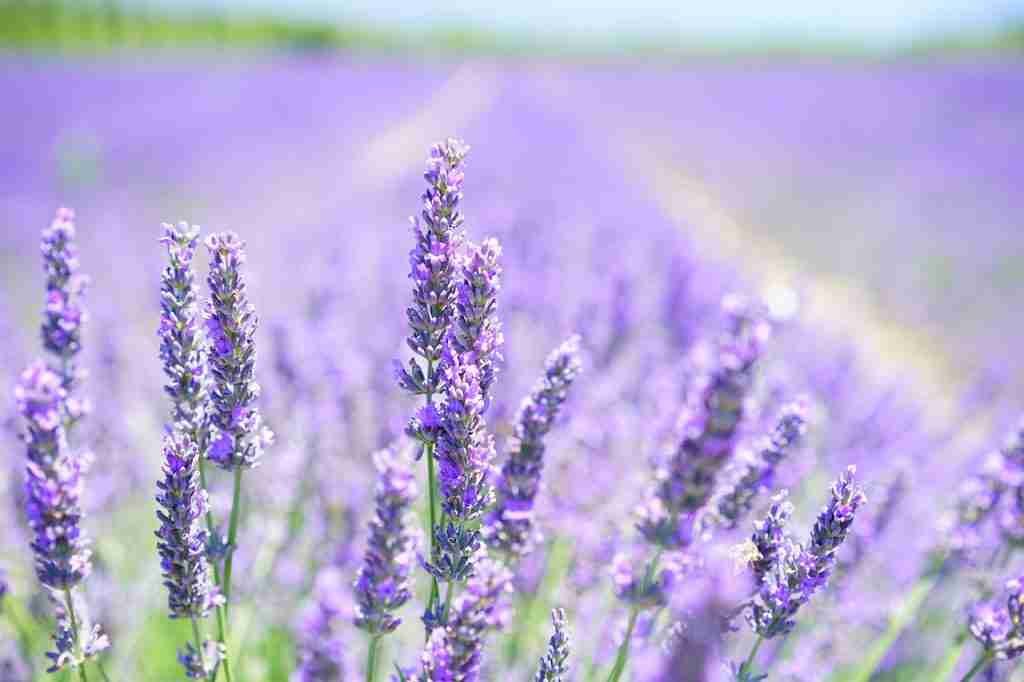
Its delightful aroma and soothing properties have made it a popular choice for promoting calmness and reducing stress.
Lavender contains compounds that interact with the nervous system, promoting relaxation and easing anxiety.
It is often used in aromatherapy to create a peaceful environment and enhance sleep quality.
You can also incorporate Lavender tea or supplements into your daily regimen.
Unwind and restore balance in your life with the companionship of Chamomile and Lavender.
Embrace the calming influence of these herbs to create moments of relaxation, leading to enhanced well-being, increased productivity, and a more fulfilling life.
Tips for Incorporating Herbs into Your Daily Routine
Exploring Different Forms of Herbs: Tea, Supplements, and Essential Oils
There are several ways to include herbs into your daily routine, each with its own set of advantages and ease.
Exploring the many kinds of herbal experience, whether through tea, pills, or essential oils, allows you to personalize your herbal experience to your interests and lifestyle.
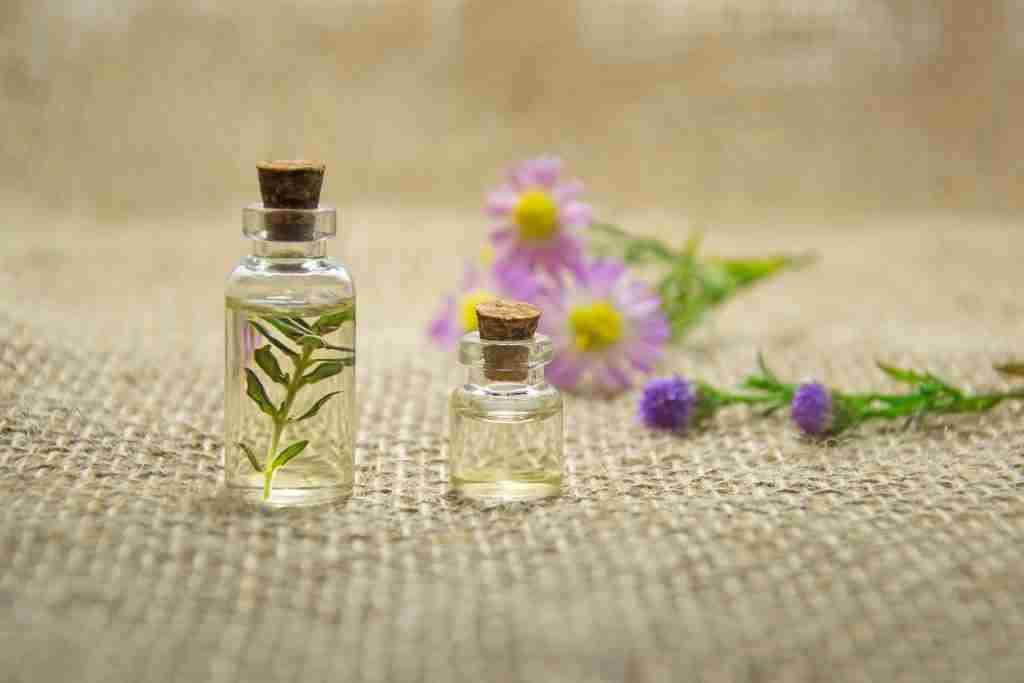
Tea:
Herbal teas are a delightful and soothing way to enjoy the benefits of herbs. Simply steep the herbs in hot water and savor the aromatic infusion.
Herbal teas not only provide the medicinal properties of the herbs but also offer a calming ritual that promotes relaxation and well-being.
Supplements:
Herbal supplements come in various forms such as capsules, tablets, or tinctures. They offer a convenient way to incorporate herbs into your routine, especially when specific dosages are required.
Remember to follow the recommended dosages and guidelines provided by the manufacturer or consult with a healthcare professional for personalized advice.
Essential Oils:
Essential oils derived from herbs can be used for aromatherapy, topical application, or diffusing.
The aromatic compounds in essential oils can have powerful effects on the mind and body. Dilute essential oils properly and follow usage guidelines to ensure safe and effective use.
Recommended Dosages and Usage Guidelines
While herbs offer remarkable benefits, it’s important to be mindful of recommended dosages and usage guidelines to maximize their effectiveness and ensure safety.
Dosages:
Herbal dosages can vary depending on the herb and its intended use.
It is crucial to follow the recommended dosages provided on the product packaging or consult with a healthcare professional for personalized guidance.
Remember that individual responses to herbs may differ, so it’s essential to start with lower dosages and gradually increase if necessary.
Usage Guidelines:
Some herbs may have specific instructions for usage, such as taking them with food or avoiding certain medications or conditions.
Always read the labels carefully and adhere to any usage guidelines provided. If you have any concerns or questions, consult with a healthcare professional or herbalist who can provide expert guidance.
Consulting with a Healthcare Professional
It is best to contact a healthcare practitioner before introducing herbs into your daily routine, especially if you have underlying health concerns, are taking drugs, or are pregnant or nursing.
They can give useful insights, assist in identifying possible relationships, and provide customized recommendations based on your individual requirements.
A healthcare expert or herbalist may examine your unique situation, address any potential dangers or side effects, and advise you on the best herbs and doses for you.
This tailored strategy guarantees that you get the most out of your herbal supplements while also focusing on your general health and well-being.
You may effortlessly incorporate herbs into your daily routine by investigating different types of herbs, following prescribed doses and usage instructions, and speaking with a healthcare practitioner.

Additional Considerations and Precautions
Potential Interactions with Medications
Embrace the natural and holistic path to boost your productivity with herbs! But , here’s an essential heads-up: be mindful of potential interactions between herbs and medications.
Some herbs might mess with how certain medications work or get metabolized, affecting their safety and effectiveness.
To safeguard your well-being, it’s absolutely crucial to keep your healthcare professional in the loop about any herbs or herbal supplements you plan to incorporate into your routine.
They’re the experts who can evaluate potential interactions, offer expert advice, and make adjustments to your medication plan if needed.
Your healthcare pro is your ultimate ally in navigating the intricate world of herb-drug interactions, ensuring you achieve the best possible health and productivity outcomes. Trust them to have your back!
Allergies and Sensitivities to Certain Herbs
While herbs are typically safe and well-tolerated, you should be aware of any potential allergies or sensitivities to certain plants.
Allergic responses can range from moderate to severe, causing skin rashes, breathing difficulties, and digestive problems.
Perform a patch test on a small area of your skin before introducing a new herb into your regimen to check for any unwanted effects.
If you are allergic or sensitive to specific herbs or plants, use caution or avoid them entirely.
If you have any concerns or suspect an allergic response, always check with a healthcare expert.
Importance of Individual Experimentation and Finding the Right Herbs for Oneself
Every individual is unique, and what works for one person may not work for another.
When it comes to herbs, it’s essential to embrace the concept of individual experimentation and find the right herbs that resonate with your body and mind.
Start by incorporating one herb at a time and observe how it affects you. Keep a journal to track your experiences, noting any changes in focus, energy levels, mood, or overall well-being.
This process of self-exploration allows you to identify the herbs that work best for you and create a personalized herbal routine that supports your productivity goals.
Remember, herbs are not a one-size-fits-all solution, and it may take time to discover the perfect herbal allies for your unique needs.
Be patient, listen to your body, and seek guidance from healthcare professionals or herbal experts along the way.
You can traverse the world of herbs safely and find the right herbs that increase your productivity and well-being by being conscious of potential interactions with drugs, evaluating allergies and sensitivities, and embracing individual experimentation.
Conclusion
To maintain energy and focus, prioritize a healthy lifestyle encompassing a balanced diet, ample sleep, and stress-reduction techniques such as enjoyable physical activity.
Throughout this article, we have delved into the remarkable properties of ten herbs that have stood the test of time in their ability to enhance productivity naturally.
Let’s briefly recap these powerful herbs
- Ginseng: Boosts energy levels and combats fatigue.
- Rhodiola Rosea: Enhances focus and mental clarity
- Ashwagandha: Reduces stress and promotes relaxation
- Holy Basil (Tulsi): Improves cognitive function and contains anti-stress, anti-inflammatory, and adaptogenic properties
- Rosemary: Improves memory and cognitive function.
- Gotu Kola: Improves circulation and cognitive function.
- St. John’s Wort (Goat weed): Treats depression and anxiety.
- Saffron: Improves mood and cognitive function.
- Chamomile: Soothes the mind and induces relaxation.
- Lavender: Embraces serenity and promotes relaxation.
If you intend to incorporate any of these herbs into your regimen, it’s crucial to consult your healthcare provider beforehand.
This step ensures proper usage and avoids potential side effects or interactions with common medications.
The potential for transformation and increased productivity lies within your grasp. Now, it’s time to take action.
Choose one or more of these herbs that resonate with you and experiment with incorporating them into your daily routine.
Whether it’s through sipping herbal tea, taking supplements, or using essential oils, find the method that suits you best.
Remember to start with recommended dosages, be mindful of any potential interactions with medications, and consult with healthcare professionals when needed.
Allow yourself the opportunity to experience the transformative effects these herbs can have on your overall well-being and productivity.
The world of herbs is waiting to support you on this transformative journey!

